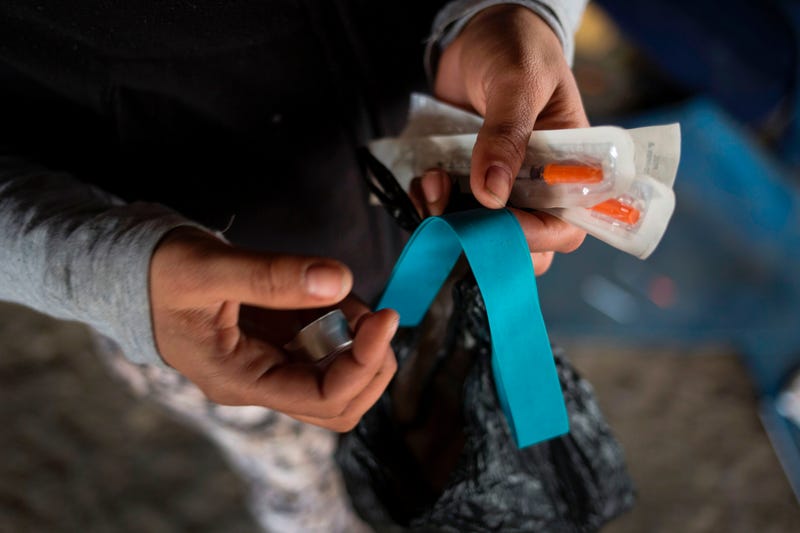
PHILADELPHIA (KYW Newsradio) — Philadelphia’s Project HOME has announced a new collaboration with area hospitals to change the way people in Kensington receive addiction treatment and housing.
The Estadt-Lubert Collaborative for Housing and Recovery — made possible by a $25 million private donation from Ira Lubert and Pam Estadt — includes Penn Medicine, Jefferson Health and Temple Health. Each health care network will receive a portion of the gift to be used over the next five years.
RELATED
The hospitals will create clinics for individuals who are struggling with opioid use disorder and help Project HOME provide services on the street that get people into permanent housing and treatment.
“What we hope to achieve is to end and prevent chronic street homelessness, because substance use is fueling homelessness all over our city,” said Sister Mary Scullion, Project HOME co-founder. “We also hope to reduce the opioid deaths, since Philadelphia has one of the highest numbers of opioid deaths in the whole country.”
The Inn of Amazing Mercy, a multi-purpose recovery housing facility in Kensington, will be fully open in August, with 62 units available. Project HOME plans to open another 30 units in January 2024.
Outreach specialist Monique Taylor said this, along with the collaboration with the hospitals, is a gamechanger.
“Some of our community, they street work,” Taylor said, “so we are starting to see an uptick in sexually transmitted infections and pregnancies. So we’ll be able to provide services for them.”
“Then when those individuals leave the hospital, they’ll get referred to the street outreach team,” said Cheryl Hill, Project HOME senior vice president of property operations and residential services, “who can then identify the best place to place them if they’re ready to go into some type of housing.”
The initiative is also being billed as a gamechanger on the national scale.
“By collaborating and sharing best practices and key program metrics, we’ll quickly be able to build on our successes and refine our efforts to ensure we are achieving the maximum positive impact for those dealing with substance use disorder,” Michael Young, president and CEO of Temple University Health System, said in a statement. “All that data and learning will be the foundation of a model that can be replicated nationally.”



